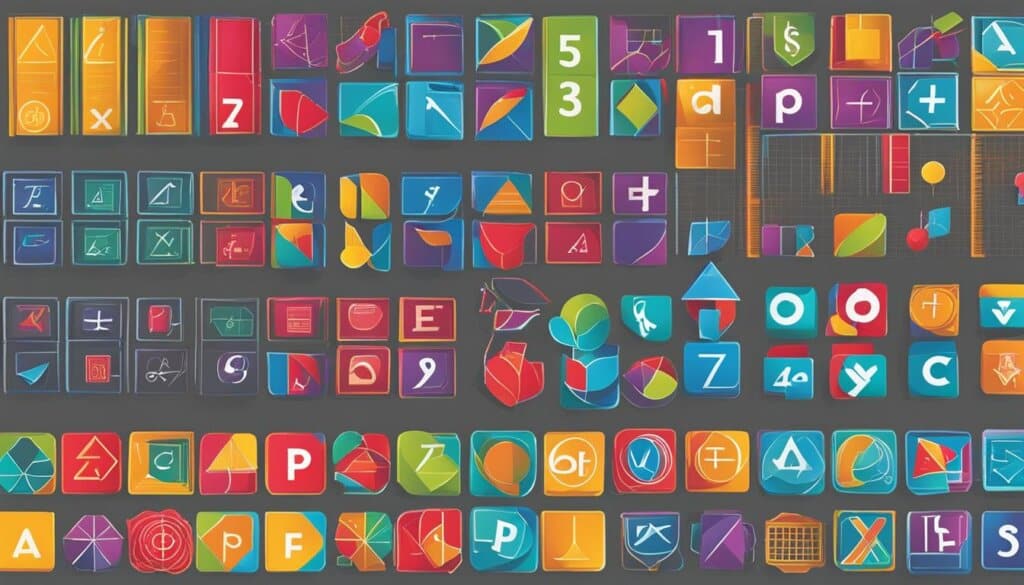Table of Contents
In the realm of mathematics, variables play a fundamental role in expressing relationships between quantities and solving complex problems. But what exactly is a variable? How does it function within mathematical equations? And why is it important to understand variables in the context of mathematics?
A variable, in mathematical terms, refers to a symbol, often represented by letters, that represents unknown or changing values in equations or algebraic expressions. By using variables, mathematicians can manipulate values and analyze the relationships between different quantities. They are a cornerstone of algebra and mathematical problem-solving.
Imagine variables as placeholders for unknown values. They allow mathematicians to explore different possibilities and find specific solutions within mathematical equations. Variables can take on various values and provide a flexible tool for mathematical analysis.
Throughout this article, we will delve deeper into the concept of variables in mathematics, exploring their definition, types, examples, applications, and more. By the end, you will have a comprehensive understanding of variables in mathematics and their significance in problem-solving and real-life applications.
What is a Variable?
A variable in mathematics is a symbol, typically a letter, that represents an unknown numerical value. It is used in equations and algebraic expressions to represent quantities that can vary or change. A variable allows mathematicians to solve equations by substituting different values and analyzing the relationship between the variable and other quantities in the equation.
| Definition of a Variable | Concept of a Variable | Meaning of a Variable |
|---|---|---|
| A variable is a symbol that represents an unknown value in mathematics. | Variables allow for the representation of changing quantities in equations and expressions. | Variables serve as placeholders for unknown numerical values in mathematical calculations. |
In algebraic equations, variables can take on any value, allowing mathematicians to analyze the relationship between the variable and other quantities. By substituting different values for the variable, mathematicians can determine the effects on the equation and solve for the desired outcome. Variables provide flexibility and enable mathematical modeling and problem-solving.
Variables are the building blocks of mathematical equations and expressions. They represent unknown or changing values and allow mathematicians to analyze relationships, solve equations, and make predictions. Understanding variables is essential for mastering algebra and mathematical problem-solving.
Next, we will explore the different types of variables used in mathematics and their significance in various applications.
Different Types of Variables
In mathematics, variables can be classified into different types based on their characteristics and relationships within equations and expressions. Understanding these types of variables is crucial for effectively solving mathematical problems. Let’s explore the two main types of variables: dependent variables and independent variables.
Dependent Variables
A dependent variable is a quantity that relies on the value of another variable. It represents the outcome or result of an equation or experiment. Dependent variables are usually denoted by the letter “y” and can change based on the value of the independent variable. For example, in the equation y = 2x + 3, where “x” is the independent variable, the value of “y” depends on the value of “x”. By manipulating the independent variable, the value of the dependent variable changes accordingly.
Independent Variables
Independent variables are quantities that do not depend on other variables. They are free to take on any value and are typically represented by the letter “x”. Independent variables serve as inputs or conditions that determine the value of the dependent variable. In the equation y = 2x + 3, “x” is the independent variable. By varying the value of “x”, we can observe how the dependent variable “y” changes. Independent variables give mathematicians control over the equation or expression, allowing them to analyze the relationship between variables.
Let’s summarize the differences between dependent and independent variables in a table:
| Dependent Variables | Independent Variables |
|---|---|
| Depend on the value of another variable | Do not depend on other variables |
| Represent the outcome or result | Serve as inputs or conditions |
| Denoted by the letter “y” | Denoted by the letter “x” |
Understanding the distinction between dependent and independent variables is vital for solving equations, analyzing mathematical relationships, and making meaningful interpretations of mathematical data. Let’s now explore the concept of algebraic variables in the next section.
Examples of Variables in Algebraic Expressions
In algebraic expressions, variables are used to represent unknown quantities or values. They allow mathematicians to analyze and solve equations by substituting different values for the variables. To understand this concept, let’s consider an example:
Expression: 2x + 6
In this expression, the variable “x” represents an unknown value that can vary. By substituting different values for “x”, we can determine the corresponding value of the expression. Let’s look at a couple of examples:
- If x = 1, the value of the expression would be 2(1) + 6 = 8
- If x = 2, the value of the expression would be 2(2) + 6 = 10
As we can see, the variable “x” can take on different values, resulting in different values for the expression. This flexibility allows mathematicians to analyze and solve a variety of mathematical problems.
To further illustrate the concept of variables in algebraic expressions, let’s consider a table:
| Value of x | Expression: 2x + 6 |
|---|---|
| 0 | 6 |
| 1 | 8 |
| 2 | 10 |
| 3 | 12 |
This table demonstrates how the value of the variable “x” affects the corresponding value of the expression. By substituting different values for “x”, we can observe how the expression changes.

Understanding variables in algebraic expressions is crucial for solving mathematical problems and analyzing mathematical relationships. By manipulating and substituting different values for variables, mathematicians can gain insights into the behavior and patterns of mathematical equations.
Importance of Variables in Mathematics
Variables play a fundamental role in mathematics, particularly in algebra. They hold significant significance when it comes to representing and solving various problems and equations. By utilizing variables, mathematicians can express and manipulate unknown quantities, explore the relationships between variables, and ultimately find specific values by solving equations. In essence, variables serve as the backbone of problem solving in mathematics, offering a flexible and powerful tool for mathematical analysis.
One of the key roles of variables is their ability to express unknown quantities. In mathematical equations, variables represent values that are yet to be determined. They provide a means to describe and quantify quantities that may vary or are not directly known. By assigning variables to unknown values, mathematicians can mathematically reason and analyze relationships between different quantities, leading to a deeper understanding of the problem at hand.
Furthermore, variables allow mathematicians to work with equations and expressions more easily. Instead of dealing solely with fixed values, they introduce an element of dynamism and flexibility. By substituting different values into variables, mathematicians can explore different scenarios, observe how the equations change, and derive insights about the relationships between variables and other quantities in the equation. This analytical power of variables is particularly valuable in algebra, where the manipulation and analysis of equations are central to solving complex mathematical problems.
“Variables are the key to unlocking the mysteries of equations and problem solving in mathematics. They empower mathematicians to express and analyze unknown quantities, enabling them to derive valuable insights and solutions.”
Solving equations with variables is a crucial application of variables in mathematics. By manipulating equations and substituting different values for variables, mathematicians can find specific solutions that satisfy the given equation. This process involves algebraic operations such as simplifying expressions, isolating variables, and solving for their values. The ability to solve equations with variables opens up a world of possibilities in mathematics, allowing for the determination of precise values and the validation of mathematical models and theories.
Overall, the significance of variables in mathematics cannot be overstated. They are the driving force behind problem solving, providing mathematicians with a powerful tool for expressing, manipulating, and analyzing unknown quantities. Variables enable mathematicians to tackle complex equations, explore relationships between different quantities, and find specific solutions. In essence, they are the building blocks of mathematical analysis and problem-solving.
Continue to Section 6: Evaluating Variables in Algebraic Equations
Summary
In this section, we explored the importance of variables in mathematics, with a focus on their significance in algebra and problem-solving. Variables allow mathematicians to represent unknown quantities, analyze relationships between variables, and solve equations to find specific values. They provide a flexible and powerful tool for mathematical analysis and play a crucial role in problem-solving. In the next section, we will delve into the process of evaluating variables in algebraic equations.
Evaluating Variables in Algebraic Equations
In algebraic equations, the process of evaluating variables plays a crucial role in solving equations and understanding mathematical relationships. Evaluating variables involves substituting specific values for the variable and simplifying the expression to determine if the values satisfy the equation, also known as the solution.
Let’s consider an example equation to illustrate this process:
2x + 6 = 12
To evaluate the variable “x” in this equation, we substitute different values for “x” and check if they satisfy the equation. By simplifying the expression on both sides of the equation, we can determine if our chosen value of “x” is a solution.
For instance, if we substitute “x = 3”:
2 * 3 + 6 = 12
6 + 6 = 12
12 = 12
Since both sides of the equation are equal, the value “x = 3” satisfies the equation, making it a solution.
Similarly, we can evaluate other values for “x” to find additional solutions if they exist.
The substitution method used in evaluating variables allows mathematicians to analyze and solve algebraic equations efficiently. It helps in understanding the relationship between variables and determining the specific values that make an equation true.
Advantages of the Substitution Method:
- Allows for systematic evaluation of variable values
- Enables precise determination of solutions
- Provides a step-by-step approach to problem-solving
- Facilitates deeper understanding of mathematical concepts
The substitution method is an essential tool for evaluating variables in algebraic equations, helping mathematicians solve problems and analyze mathematical relationships with accuracy.
| Variable Value (x) | Evaluation | Solution |
|---|---|---|
| x = 1 | 2 * 1 + 6 = 12 | No |
| x = 2 | 2 * 2 + 6 = 12 | No |
| x = 3 | 2 * 3 + 6 = 12 | Yes |
| x = 4 | 2 * 4 + 6 = 12 | No |
The table above showcases the evaluation of different values for the variable “x” in the equation 2x + 6 = 12. It demonstrates how the substitution method helps determine the existence of solutions by substituting values and evaluating their validity.
Applications of Variables in Mathematics
Variables are not only fundamental in mathematical equations and algebraic expressions but also find practical applications in various fields. Let’s explore some real-life examples and the practical use of variables in mathematics.
1. Modeling and Analyzing Real-Life Scenarios
Variables enable mathematicians to model and analyze real-life scenarios by representing different aspects or quantities that vary. For example, in physics, variables can represent physical quantities such as time, distance, or velocity, allowing scientists to understand and predict the behavior of objects or systems.
2. Formulating Equations and Functions
Variables play a crucial role in formulating equations and functions that describe relationships between variables and other factors. These equations and functions are used in various scientific fields, such as economics, where variables like price and quantity are used to model supply and demand.
3. Making Predictions Based on Changing Variables
Mathematicians can use variables to make predictions by analyzing the relationship between variables and identifying patterns or trends. For example, in statistics, variables can be used to analyze data and make predictions about future outcomes or trends, helping businesses plan and make informed decisions.
4. Statistical Analysis
Variables are extensively used in statistical analysis to represent different attributes or characteristics of a population. By collecting data on variables and analyzing their relationships, statisticians can draw meaningful conclusions, make statistical inferences, and understand trends within a given population.
“In the field of data analysis, variables are essential for understanding patterns and relationships. By appropriately defining and analyzing variables, we can gain valuable insights and make informed decisions.” – Dr. Anna Thompson, Statistician
Overall, variables have widespread applications and are indispensable tools in mathematics and related disciplines. They allow mathematicians to understand and solve complex problems, model real-world situations, and make predictions based on data analysis.
Conclusion
In summary, variables are indispensable elements in mathematics as they enable mathematicians to represent, manipulate, and solve various problems and equations. Serving as placeholders for unknown or changing quantities, variables allow for the analysis and comprehension of mathematical relationships. By understanding variables, mathematicians can successfully tackle complex problems, make accurate predictions, and apply mathematical concepts to real-world situations.
Key Takeaways:
- Variables in mathematics are symbols, typically letters, used to represent unknown or changing values in equations or algebraic expressions.
- There are two main types of variables: dependent variables, which depend on the value of another variable, and independent variables, which do not depend on other variables.
- Variables play an essential role in algebraic expressions, where they represent unknown quantities and enable the determination of corresponding values.
- Variables are of utmost importance in mathematics, allowing mathematicians to solve problems, analyze relationships, and make predictions.
- By evaluating variables through the substitution method, mathematicians can determine their value and check if it satisfies a given equation.
- Variables find applications in various fields, such as statistics, science, research, and programming, where they model and analyze real-life scenarios.
By grasping the concept of variables, mathematicians gain a powerful tool for problem-solving and mathematical analysis, enabling them to delve into the intricate world of mathematics and its practical applications.
FAQ
What is a variable in mathematics?
A variable in mathematics is a symbol, typically a letter, that represents an unknown numerical value. It is used in equations and algebraic expressions to represent quantities that can vary or change.
What are the different types of variables in mathematics?
There are two main types of variables in mathematics. Dependent variables are quantities that depend on the value of another variable, usually represented by the letter “y”. Independent variables, on the other hand, do not depend on other variables and are typically represented by the letter “x”.
How are variables used in algebraic expressions?
In algebraic expressions, variables are used to represent unknown quantities or values. They allow mathematicians to solve equations by substituting different values for the variable and determining the corresponding value of the expression.
What is the significance of variables in mathematics?
Variables play a crucial role in mathematics, especially in algebra. They allow mathematicians to represent and solve a wide range of problems and equations, analyze relationships between quantities, and make predictions based on changing variables.
How can variables be evaluated in algebraic equations?
Variables in algebraic equations can be evaluated by substituting specific values for the variable and simplifying the expression. The different values of the variable are then checked to see if they satisfy the equation, known as the solution.
What are the practical applications of variables in mathematics?
Variables have practical applications in various fields of mathematics, including statistics, science, research, and programming. They allow mathematicians to model and analyze real-life scenarios, formulate equations and functions, and make predictions based on changing variables.
What are the key takeaways about variables in mathematics?
Variables are essential in mathematics as they enable mathematicians to represent, manipulate, and solve a wide range of problems and equations. They serve as placeholders for unknown or varying quantities, allowing for the analysis and understanding of mathematical relationships.












